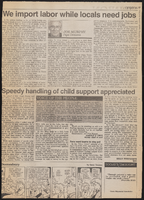Search the Special Collections and Archives Portal
Search Results
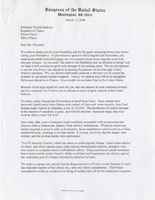
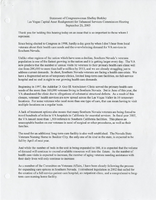
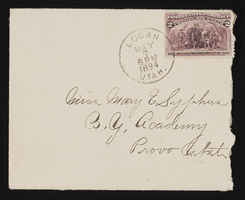
Letter and envelope from John M. Bunker, Logan, Utah to Mary Etta Syphus, Provo, Utah
Date
Archival Collection
Description
From the Syphus-Bunker Papers (MS-00169). The folder contains an original handwritten letter, an envelope, a typed transcription of the same letter, and a copy of original letter attached.
Text

Charles Scott Emerson oral history interview: transcript
Date
Archival Collection
Description
Oral history interview with Charles Scott Emerson conducted by Claytee D. White on December 21, 2017 for the Remembering 1 October Oral History Project. In this interview, Charles Scott Emerson discusses his work with the American Red Cross and the disaster relief the organization provided during the aftermath of the October 2017 mass shooting in Las Vegas, Nevada. The interview begins with a discussion on Emerson's early life and career in Missouri and how he moved to Las Vegas in 2004. Emerson talks about the American Red Cross response plans and coordinated operations that are in place for when the community is faced with a disaster, going into specific detail on the community-wide response to the October 1, 2017 shooting. He gives a behind-the-scenes glimpse into how relief work is organized, using this interview as a chance to praise the hidden heroes of the October 2017 tragedy, including the people at the Family Assistance Center, the Attorney General's Office, the Driver's License Bureau, and the Coroner's Office, as well as mental health providers, child care workers, blood donors, and more. Throughout the interview, Emerson puts special emphasis on the importance of community in order to offer support in the aftermath of a tragedy as well as to prevent a man-made tragedy from occurring again.
Text
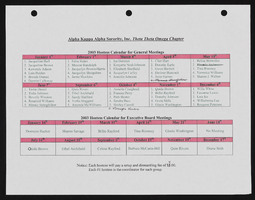
Alpha Kappa Alpha Sorority, Theta Theta Omega Chapter calendars
Date
Archival Collection
Description
From the Alpha Kappa Alpha Sorority, Incorporated, Theta Theta Omega Chapter Records (MS-01014) -- Chapter records file.
Text
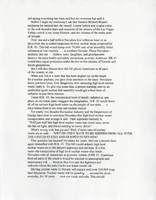
Skaggs, Robert L.
Dr. Robert Skaggs was born April 2, 1932 and grew up around the St. Louis, Missouri area. His father was a teamster with a milk delivery route, tried his hand at the restaurant business, and during World War II worked for the United States Cartridge. Several members of Skaggs’s family were teachers, including his grandmother and a couple of aunts. Skaggs graduated from Normandy High School and afterwards attended the Missouri School of Mines and majored in metallurgical engineering. He graduated in 1954 and went to work for DuPont University for two years.
Person



